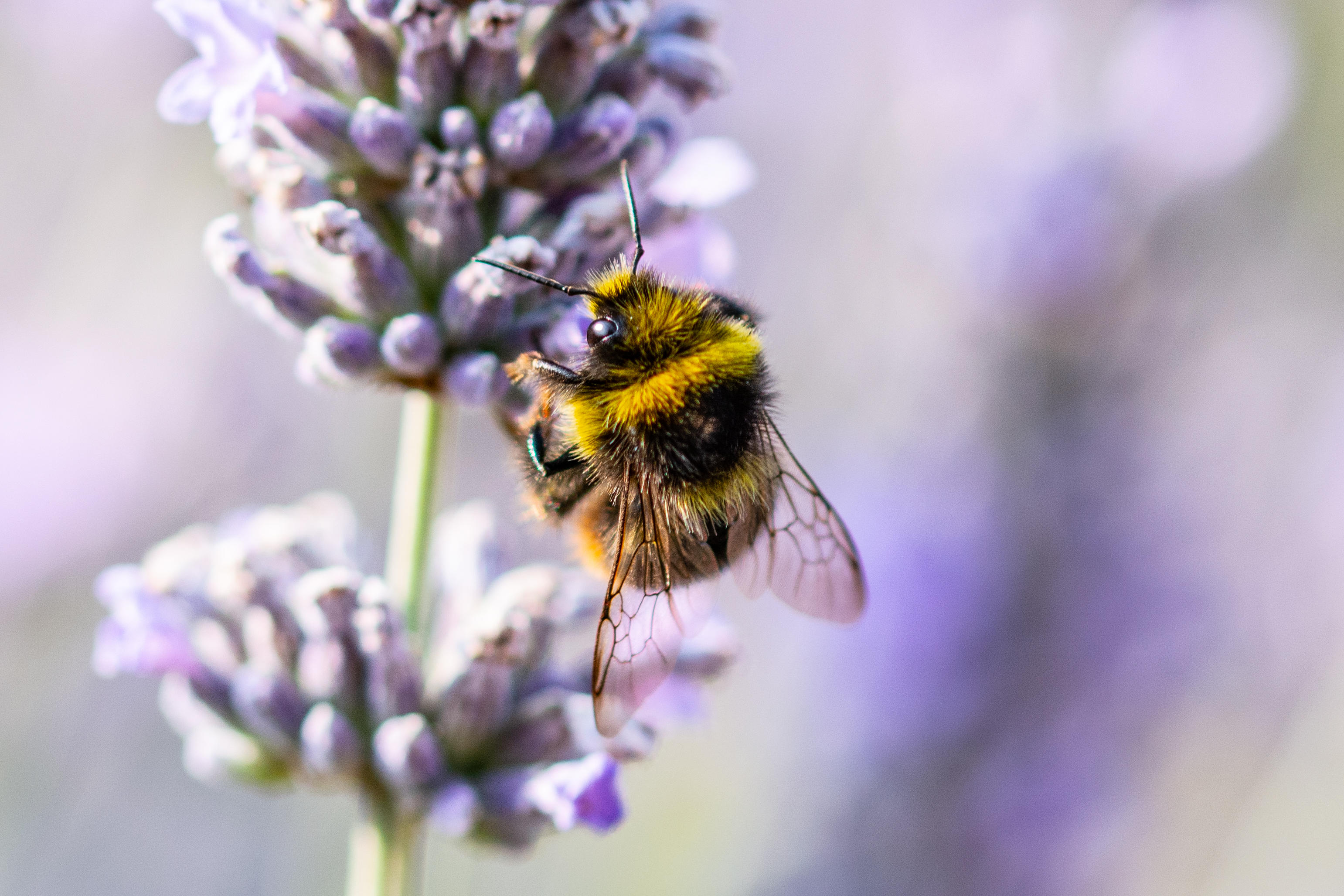Bees in your home? A new campaign helps people how to deal with a swarm without harming pollinators
Bees are under threat from many quarters and members of the public who destroy nests are contributing to the species' decline. A new information campaign now directs people who have a a swarm on their property to beekeepers' association that can remove and re-home the insects.


Already endangered by loss of habitat, climate change, exposure to chemicals and disease, bees are dealt a further blow any time members of the public brutally remove nests from their homes and gardens. But now, a campaign helps people find out what to do without putting the insects, or themselves, in danger.
The problem of unwanted bees came into sharp focus after a concerned Nottingham resident described the destruction of a nest in a nearby property in a letter to a pest control company. Ms Victoria Harwood wrote to West-Yorkshire-based Key West Pest Control, asking for their help in raising awareness of the correct ways to remove the beleaguered pollinators.
Mentioning ‘an incident where a nest was killed with bleach and boiling water by a homeowner who was refused help from a pest-control company,’ Ms Harwood noted that, although bees are not pests, it’s understandable that someone may not like to have them inside their home. So she went on to ask whether Key West could list the contact details of the British Beekeeping Association on their website so that members of the public would know who to call ‘if they have bees building a home where they are not welcome.’
The heartfelt letter struck a chord with the company’s CEO, Sean Mclean, who has now launched an information campaign on social media to help people understand what to do if they have a swarm living under their roof.
‘Everybody knows that bees are in danger and the thought of people harming them doesn’t sit right with me,’ says Mr Mclean. ‘We’re hoping that with the power of social media and blogs we can reach people across the UK and encourage more of them to support the cause. If everyone does their little bit, then we can go a long way in protecting these valuable creatures.’
He explains that pest control companies won’t deal with a bee problem — guidelines from the British Pest Control Association state that ‘pest controllers do not apply bee treatments unless there is a serious threat to human life’ — although they may be able to help callers identify whether they are dealing with wasps or bees, and how to be safe around the insects until they receive help.
Crucially, cautions Mr Maclean, members of the public should never take matters into their own hands. Instead, as Ms Harwood suggested in her letter, they should turn to experienced beekeepers, who can remove and re-home the bees.
Exquisite houses, the beauty of Nature, and how to get the most from your life, straight to your inbox.
As he's based in Leeds, Mr Mclean recommends the Leeds Beekeepers' Association for people living in West Yorkshire and surrounding areas but for other parts of the country, the first point of contact is the British Beekeepers Association, which can provide advice and remove honey bees. Those dealing with bumblebees can get in touch with the Bumblebee Conservation Trust (though it's important to note bumblebees very rarely sting and can just be left alone) while pest-control professionals can take care of wasps and hornets.
Carla must be the only Italian that finds the English weather more congenial than her native country’s sunshine. An antique herself, she became Country Life’s Arts & Antiques editor in 2023 having previously covered, as a freelance journalist, heritage, conservation, history and property stories, for which she won a couple of awards. Her musical taste has never evolved past Puccini and she spends most of her time immersed in any century before the 20th.
